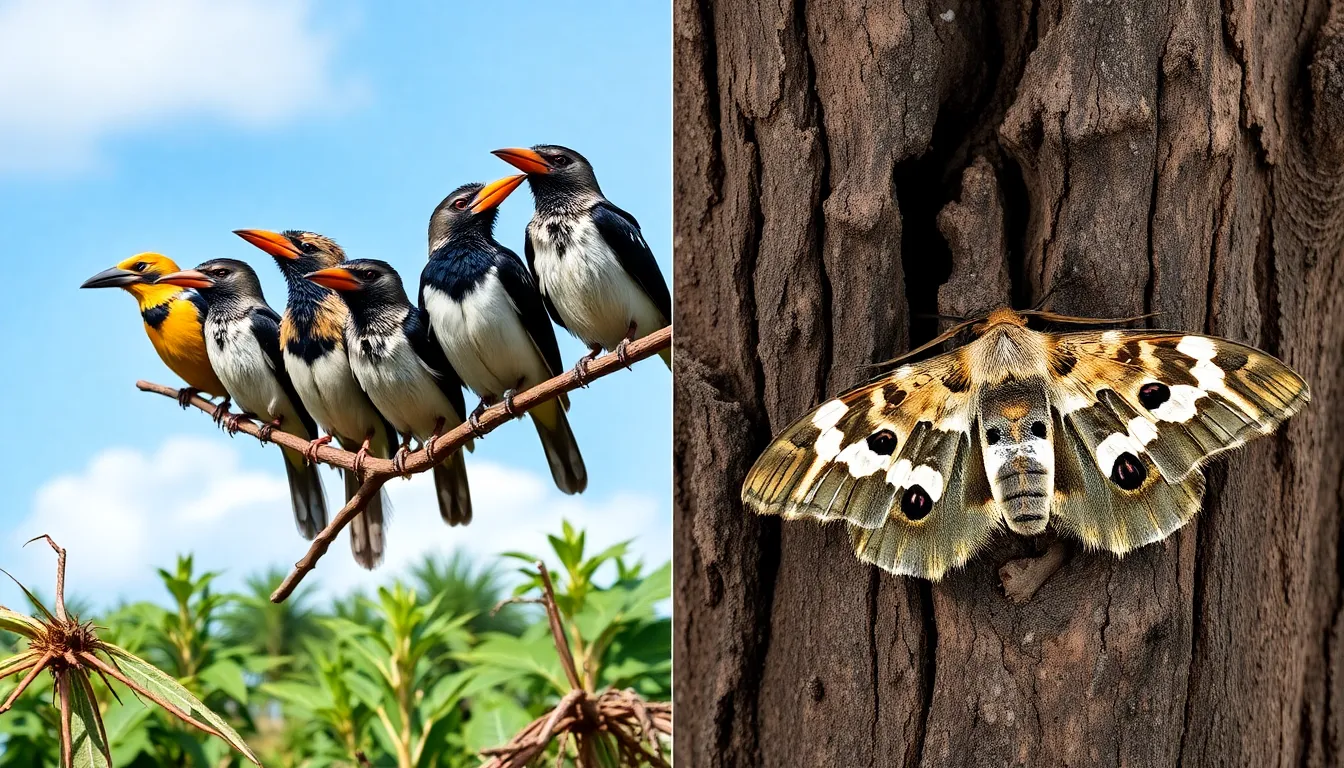Table of Contents
ToggleIn a world where change is the only constant, some stories of evolution stand out like a peacock in a flock of pigeons. From humble beginnings to remarkable transformations, these tales showcase how adaptability and resilience can lead to extraordinary success. Whether it’s a business that pivoted to meet new demands or an individual who reinvented themselves against all odds, these stories inspire and entertain.
Overview of Successful Evolution Stories
Successful evolution stories illustrate the transforming power of adaptability and resilience. These narratives reflect how individuals and businesses embrace change to achieve remarkable outcomes.
Definition and Importance
Successful evolution involves adapting to challenges and embracing opportunities for growth. It represents the journey of change that leads to substantial improvement. Understanding this concept is crucial for motivating others to pursue their own transformational paths. The importance rests not only in achieving goals but also in cultivating an innovative mindset that thrives in dynamic environments.
Notable Examples
Numerous examples showcase successful evolution across different sectors. Apple Inc. transformed from a struggling computer company into a global leader in technology through innovative products. Starbucks evolved from a single store in Seattle to a worldwide coffeehouse chain, focusing on customer experience. Airbnb started as a small rental service and grew into a major player in the hospitality industry, revolutionizing how people travel. Each story emphasizes the power of adaptation and the willingness to take risks to achieve success.
Case Study: Species in Adaptation

Adaptation serves as a key theme in evolution, exemplified by unique species that demonstrate significant transformations.
Darwin’s Finches
Darwin’s finches show fascinating evolutionary adaptations in response to environmental changes. Originating in the Galápagos Islands, these birds evolved distinct beak shapes to access various food sources. Researchers observed at least 14 species, each with specialized beaks suited for nuts, seeds, or insects. Variations in beak size directly relate to food availability and competition, illustrating natural selection in action. During droughts, birds with larger beaks thrived on tougher seeds, while those with smaller beaks faced challenges. Over generations, this adaptability led to diverse adaptations, showcasing how environmental pressures shape species.
The Peppered Moth
The peppered moth exemplifies rapid adaptation driven by environmental changes. Initially, the majority exhibited light coloration, allowing them to blend into lichen-covered trees. Industrial revolution pollution darkened tree bark, pushing natural selection towards darker moths. Research documented a significant shift, with up to 98% of moths becoming melanic in polluted areas by the 1950s. This case illustrates the impact of human activity on species adaptation. As air quality improved in subsequent decades, lighter moth populations began to reclaim their habitat, demonstrating a responsive evolution to changing environments.
Successful Evolution in Technology
Technology constantly evolves, showcasing remarkable success stories that inspire adaptation and growth.
The Evolution of Smartphones
Smartphones transformed from basic communication devices into essential multifunctional tools. Apple launched the iPhone in 2007, revolutionizing the mobile industry with its touch interface and applications. Competitors quickly followed, leading to rapid advancements in processing power, design, and features. Samsung, for instance, introduced high-resolution cameras and innovative displays, setting new market standards. Not only did these advancements drive consumer demand, but they also encouraged smartphone manufacturers to prioritize user experience and increase smartphone adoption rates globally. In 2022, over 6.5 billion smartphones were in use worldwide, highlighting their integral role in everyday life.
Innovations in Renewable Energy
Renewable energy witnessed significant advancements, reshaping global energy consumption patterns. Solar and wind energy technologies improved dramatically over the past decade. In 2010, the cost of solar energy systems was around $4 per watt, but by 2022, prices dropped to nearly $0.50 per watt, facilitating broader adoption. Wind energy became a prominent player in energy generation as well, with offshore wind turbine capacities increasing significantly. Companies like Siemens Gamesa and GE Renewable Energy took leadership roles in developing more efficient systems. Collectively, these innovations contributed to a substantial rise in global renewable energy capacity, hitting 3,100 gigawatts by the end of 2021, further promoting sustainable practices.
Lessons Learned from Evolution Stories
Successful evolution stories highlight key lessons about adaptability and resilience in both individuals and organizations. Transformation requires embracing change, which leads to extraordinary achievements.
Adaptability and Survival
Adaptability serves as a crucial element for survival. Successful companies like Starbucks demonstrate how adjusting to customer preferences shapes growth. Bringing innovative ideas into their practices helps businesses thrive in competitive markets. Darwin’s finches illustrate natural selection, showcasing species’ ability to adapt to environmental shifts. Rapid adaptations allow these birds to exploit various food sources. Observations of the peppered moth underline the impact of external pressures on species, reflecting how shifts in environment drive change. Companies facing disruptive challenges often find success by pivoting strategies to better align with current demands.
Innovation and Change
Innovation drives progress and transformation. The smartphone evolution highlights how technology can redefine communication and entertainment. Launching the iPhone transformed consumer expectations and created opportunities for various applications. Advancements in renewable energy demonstrate innovation’s role in promoting sustainability. Significant reductions in solar panel costs have encouraged widespread adoption of clean energy solutions. Companies focusing on emerging technologies often position themselves as market leaders. Embracing change fosters a culture of innovation, ensuring long-term success and relevance in fast-paced industries. Transformational stories reinforce the value of innovative thinking in overcoming challenges and achieving growth.
Future Prospects of Evolution Stories
Examining the future of evolution stories reveals ongoing developments and expansive implications. Continued exploration fuels insights into adaptability.
Ongoing Research
Research focuses on the mechanisms of evolution across species. Scientists study genetic variations, environmental pressures, and adaptive traits that influence survival. The implications of climate change play a crucial role in these investigations, prompting scientists to explore how species modify behaviors and features in response. Notable studies involve tracking shifts in populations of various organisms as they adapt to changing habitats, providing valuable data for understanding evolutionary processes. Furthermore, advancements in technology enhance research capabilities, offering new methodologies like CRISPR for gene editing. As a result, ongoing research promises to deepen comprehension of evolution and its impact on both natural and human-driven transformations.
Potential Impacts on Society
Society benefits significantly from insights into successful evolution stories. Understanding adaptability informs business strategies, encouraging innovation and resilience. Improved strategies lead to enhanced customer experiences, greater competitiveness, and sustainable practices. Health sectors also gain from knowledge of evolutionary adaptations, assisting in the development of vaccines and treatments. Additionally, education systems integrate evolutionary principles into curriculum, fostering critical thinking in future leaders. As a collective understanding of adaptation grows, society can better face challenges, promoting informed decision-making and constructive change. Overall, the insights derived from studying evolution stories shape a more adaptable and resilient society.
Successful evolution stories highlight the incredible power of adaptability and resilience. They inspire individuals and organizations to embrace change and pursue innovation. These narratives serve as reminders that transformation often leads to unprecedented success.
By learning from both nature and industry, society can cultivate a mindset geared toward growth and progress. The lessons drawn from these stories not only motivate but also provide practical insights for navigating challenges in an ever-evolving landscape. As the future unfolds, the ability to adapt will remain a cornerstone of success, ensuring that both people and businesses thrive in the face of change.







